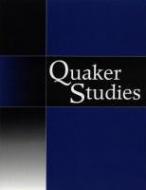
Abstract
This paper makes use of the technology that allows for the searching of the online edition of the Old Bailey Proceedings. Although Quakers were once very familiar with courts of justice, by the eighteenth century they had become considerably less persecuted than formerly. Their way oflife meant that they did not figure highly among defendants in criminal courts. Their testimony against oaths excluded them too from the ranks of prosecutors and witnesses, the newly won right to affirm not extending to criminal trials. Quakers figure in fewer than 100 of the 45,000 Old Bailey trials in this period. Nevertheless, what evidence there is gives some fascinating insights into the creation of the popular image of Quakers and their interaction with both the criminal justice system and wider society in eighteenth-century London.
Recommended Citation
Newman, Edwina
(2008)
"'Children of Light and Sons of Darkness': Quakers, Oaths and the Old Bailey Proceedings in the Eighteenth Century,"
Quaker Studies: Vol. 12:
Iss.
1, Article 6.
Available at:
https://digitalcommons.georgefox.edu/quakerstudies/vol12/iss1/6
